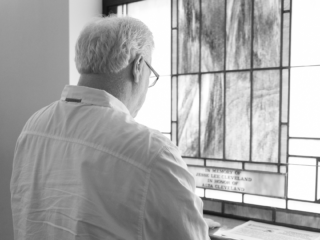Not too long ago, a pharmacist in Nashville was arrested for diluting cancer drugs while still charging full price for the prescription. Local doctors would phone in their patient’s prescriptions and this pharmacy would mix the required drugs. Patients would drop by the pharmacy, pick up their drugs and take them as prescribed. If the cancer had been caught in time, the medicine, mixed with a lot of prayer, would do its work. The pharmacist had developed a very successful practice. Both doctors and patients had learned to trust him.
Sometime in the past few years, the pharmacist had gotten into money trouble. So, he started diluting the medicine. That is, he wouldn’t put as much of the chemicals into the solution that attacked the cancer cells and still charged the full price for the prescription. His scheme was working pretty well until the doctors noticed a consistent downturn in their outcomes. People with similar illnesses were no longer responding to the medicine. A routine investigation discovered the problem. The medicine wasn’t strong enough to do the work.
Some days, I wonder if we’ve done the same thing with the gospel. For years, experts, whoever they were, told us as preachers that we should go easy on the guilt and condemnation in our sermons. On one hand, I can see their point. I grew up in a church where we were held over hell like marshmallows. We were afraid all the time, never knowing when one sin would be the final straw, forcing God to give up and throw us into hell.
So, we did. We laid off the guilt and preached grace upon grace. That didn’t work either.
For one reason, it’s not honest. Unless you’re dealing with a psychopath, people know when they’re doing wrong. Most people are aware that they’re causing pain, making a mistake, or doing harm. When they talk to you about their decisions, they’ll usually say something like, “I know I’ve messed up,” or, “I don’t know how they will ever forgive me.”
When we tell them, “Don’t worry about it because Jesus will forgive you for what you’ve done,” even though we’re well-meaning when we say it, they don’t believe us. Why? Because they know the seriousness of their sin. Most people know it’s just not that easy. They know that making things right isn’t a matter of saying “I’m sorry” and forgetting all about it. Part of confession is admitting we’ve done something wrong…very wrong. Something so wrong that Jesus had to carry our mistake, our failure, our sin to the cross.
The gospel is bad news before its good news. The bad news is we’ve broken the relationship with God and we can’t fix it. Hearing that makes us really uncomfortable. Since we don’t want to make our congregations feel uncomfortable, we rush past this part of the healing. We, as ministers, have become uncomfortable in allowing our people to become uncomfortable. We won’t let our people sit with the pain — even for a little while.
This is why most people never understand the seriousness of their sin. When we take the edge off the gospel, people don’t trust us. They know what they did is wrong and people were hurt. You can’t just say “It’s okay. Jesus forgives.” The world doesn’t take sin seriously either. Our world is scattered with the corpses of broken families, broken children, broken communities and cities, even broken nations, and still, we think all of this can be made better with a simple tweak or two.
Several years ago, when I first started working with a trainer, I was at the gym the morning after a very nice banquet the night before. There had been lots of food and, well, lots of food. Needless to say, I was struggling during the workout. In fact, I was sure I was near death. At one point in my suffering, my trainer leaned in and said, “You’re feeling pretty bad, aren’t you?”
“Bad? I think I’m going to die.”
“You won’t,” he said, “but you’re going to feel like it. You poisoned your body last night with rich food and now, your body is looking for energy it doesn’t have. So, it’s pulling from every fiber of your body.”
And then he said, “Remember this feeling. I don’t ever want you to feel like this again.”
Sometimes, I wonder if we as ministers need to sit with our people in their grief and pain and remind them, “This is what sin feels like and we don’t ever want you to feel like this again.” Like the pharmacist I mentioned earlier, we’ve diluted the gospel to the point that it doesn’t make us uncomfortable anymore. We’ve weakened its strength so that it doesn’t make us feel bad anymore.
The problem is, we have diluted it to the point that it’s not strong enough to make us well either.
Our world is a mess and the world knows it. As proclaimers of the good news, we can’t just say, “Go and be well. Jesus forgives you.” The message is more demanding than that. It has to be. It’s a matter of life and death. We don’t just say, “Go and be well.” We say, “Drop everything and come follow.”
Only Jesus can forgive. Only Jesus can heal. Only He has the words of life.
This is the only gospel worth preaching. This is the only gospel worth following.
It’s the only one that can help.









